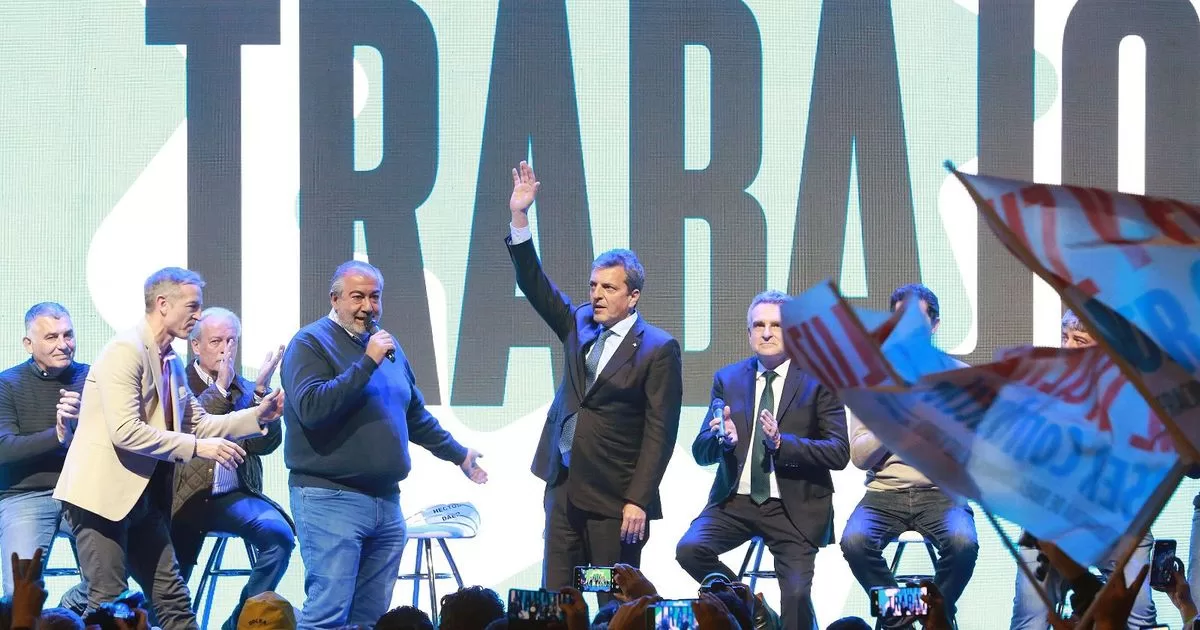“The first to cry out to the sky are the mayors”. The electoral year had not yet started when Christianity asked Alberto Fernandez that would define the granting by decree of a fixed sum that would help alleviate the blow of inflation in the pockets. The Casa Rosada did not advance and, in his conversations, the President invariably collided with two walls that opposed the decision, the CGT and the municipalities, which pay the lowest wages in the labor market.
But the landscape changed dramatically after the August 13 primary. In his first public appearance after the elections, Sergio Massa announced that it is working on a plan to “stabilize prices and to cushion the damage that the devaluation caused to the pocket of the population.” The minister advanced in TN what there will be a fixed amount “within the framework of parity”, reinforcements in family allowances and the Universal Child Allowance (AHU) and measures for retirees.
The mayors will put the cry to heaven again, but this time there will be no contemplations. “That they take out the money they have in fixed terms,” they point out in the Unión por la Patria (UP) campaign bunkerwhere they have full knowledge of the municipal accounts, particularly in the province of Buenos Aires, where the ruling party lost 20 points compared to the 2019 elections. Already in March of this year, there was crossfire between the national Labor Minister, Kelly Olmosand his Buenos Aires counterpart, Walter Correa. “The most backward salary sector is that of the municipalities of the province of Buenos Aires,” said the national official. “The minister is not informed,” Correa replied.
The main diagnosis of the ruling party is that the votes that fell by the wayside were lost to the beat of the deterioration of the purchasing power of the working class, which changed Peronism for Javier Miley. Not only the national ballot deflated. The governor Axel Kicillof and the mayors also left a percentage along the way. In La Matanza, a stronghold of Peronism, there were 135,000 votes. In Merlo, 59 thousand, out of a total population of 580 thousand. “We assume that everyone understands the seriousness of the situation and the risk of having to govern in the future without their own governor or with Milei as president,” they point out in UP.
The CGT was another resistance to overcome. The majority of the unions refused for months to advance the fixed sum that, they understand, flattens the wage pyramid and takes away the main bargaining tool, parities. Both Massa and Fernández passed in the decision their relationship with the CGT that heads Hector Daer. The CTA always stopped on the opposite sidewalk, so Hugo Yaskyand the trucker Pablo Moyanowhich ultimately tipped the balance.
The electoral situation made the situation decant by its own weight. The numbers on Sunday and the devaluation on Monday pushed Massa’s decision that he knows that, without salary recomposition, he has no chance of dreaming of the ballotage.
as far as he could tell Letter PDuring these hours, the Ministry of Economy is working on the details of the implementation of the measure, whose main risk is non-compliance by the private sector, particularly small and medium-sized companies. Massa is studying the possibility of differentiating between large companies and SMEs, in addition to granting tax benefits that guarantee compliance. Everything will be resolved next week, upon the return of the minister’s trip to the United States, where he will finish closing the negotiation with the International Monetary Fund (IMF).

